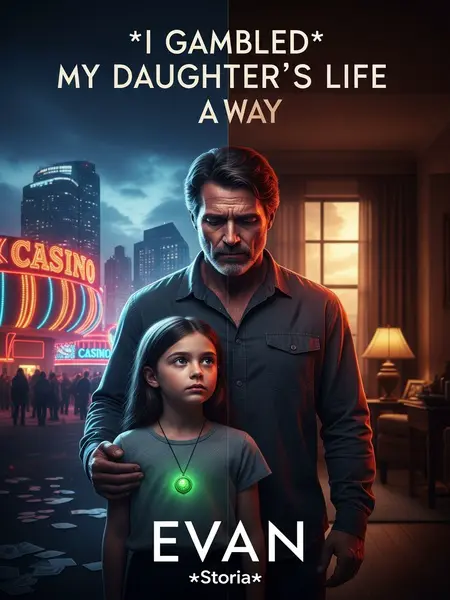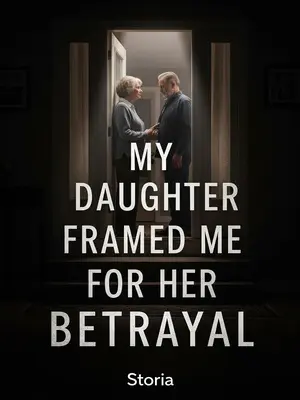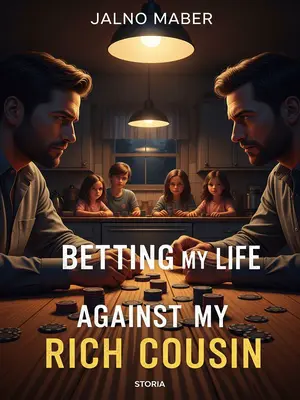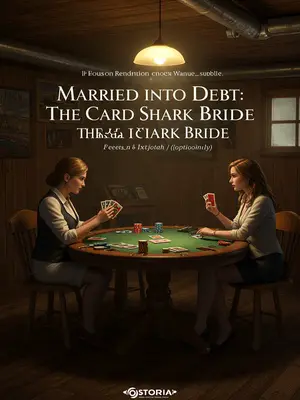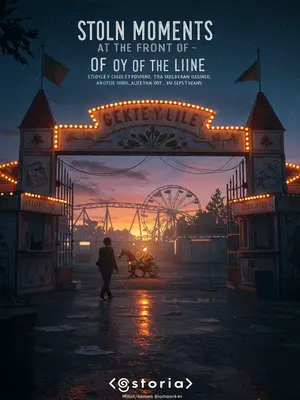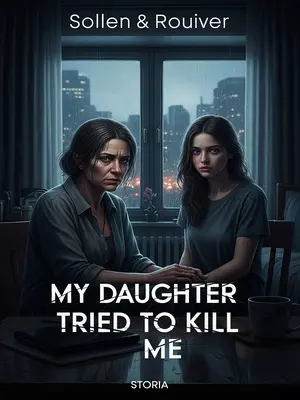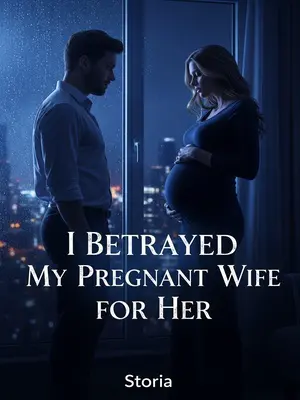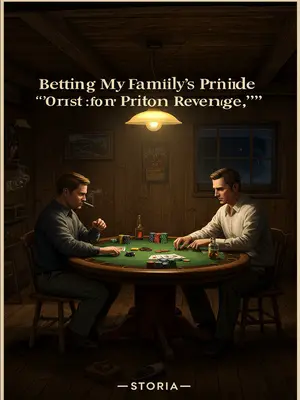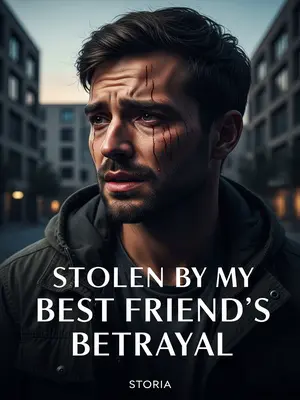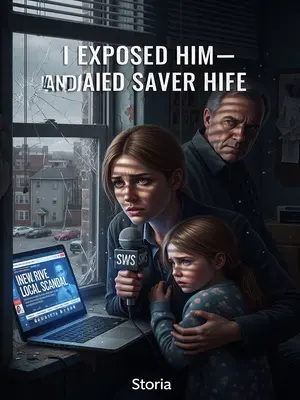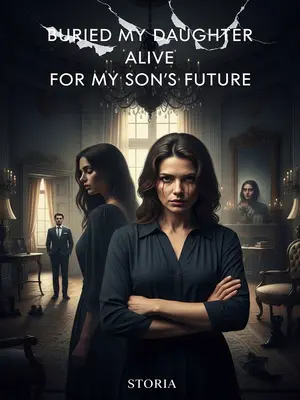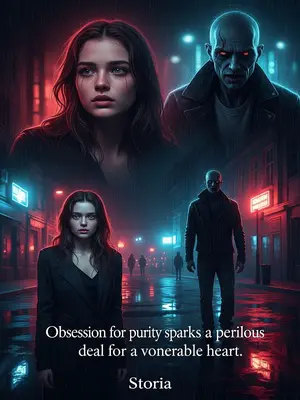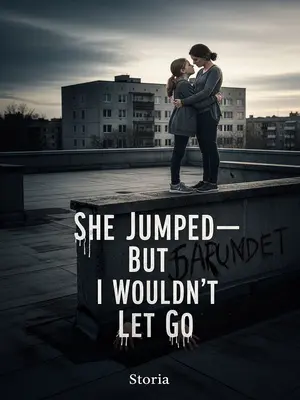Chapter 2: All-In for a Second Chance
No bars. Not even Wi-Fi. It was like being cut off from the world, with no way to call for help. My stomach twisted.
I could only try sending a desperate text to 911, hoping it would somehow go through.
My thumbs flew across the screen, typing out a plea for help. I hit send, praying for a miracle.
The bodyguards outside kept barking, “You’ve got three minutes left.”
Their voices echoed down the hallway, getting louder and more impatient with every passing second.
After sending the message, I tried to act casual and walked back in.
I pasted on a smile, forcing my shoulders to relax. Inside, I was screaming.
The boss across from me grinned slyly. “Let’s keep going, then.”
He shuffled the deck, his eyes never leaving mine. He knew he had me trapped.
My heart hammered—I had no way of knowing if my message got through.
Every second felt like an hour. I kept glancing at the door, hoping to hear sirens or see flashing lights.
The dealer started dealing again, and the pendant around my neck began to burn hot.
It felt like it was branding me, searing a warning into my skin. I gripped it tight, trying to keep my hands from shaking.
I clenched my teeth, sweat dripping onto the table.
My shirt stuck to my back, and the room felt a hundred degrees hotter. My cards felt heavy as lead.
If I showed my cards, my daughter’s life would be cut short. Mine too. I could almost see it happening.
I could almost see the hospital room, the machines, the beeping monitors. I couldn’t do it—not again.
But if I didn’t, I might not make it out of here alive.
I looked at the knife on the table, the bouncers at the door. This was a nightmare with no way out. My chest tightened.
My brother urged me again, “Come on! I know you can win.”
He sounded so eager, like he was cheering for me, but I knew better now.
“The hospital just called—they said your daughter’s back in the ICU. If you don’t play, where’s the money going to come from?”
He twisted the knife, using my daughter’s illness as leverage. My hands balled into fists under the table. Damn him.
I gritted my teeth and stayed still for a long time. The casino boss got impatient.
The silence dragged on until it was unbearable. People started shifting in their seats, whispering. My skin crawled.
He walked over with the knife, face twisted with anger.
His footsteps echoed off the walls, each one heavier than the last. He loomed over me, eyes narrowed.
When he reached me, he slammed the knife onto the hand of the gambler who’d just played before me.
The man screamed, blood splattering across the felt. The room went dead silent.
“If you don’t show your cards, you’ll end up like him.”
The threat hung in the air, sharp and undeniable. My breath caught in my throat. I froze.
“I’ll give you three seconds! Three, two, one…”
He counted down, voice rising with each number. My mind raced, searching for any way out.
Just as he hit one, the police kicked in the door and shouted,
The door burst open, and suddenly the room was flooded with flashing lights and shouting officers.
“Everybody, hands on your heads and get down! You’re all coming to the station for questioning!”
The bouncers froze, the boss dropped the knife, and chaos erupted. I put my hands up, relief crashing over me.
I finally breathed out. When it was over, my back was drenched in sweat.
My shirt clung to me, and my legs felt like jelly. I slumped forward, barely able to keep my eyes open.
I slumped in exhaustion.
The adrenaline crash hit hard. I felt like I’d just run a marathon, every muscle aching.
As we were being taken away, my brother flipped over my cards.
He couldn’t help himself—always had to know if he’d missed out on something big.
Three Aces.
The table gasped. Even the cops glanced over, impressed. It was the kind of hand people dream about.
If I’d shown my hand, I would’ve won for sure. But at what cost? I looked at the cards, then at my brother, and felt nothing but cold resolve. Never again.
As he was being led out, my brother still complained,
“If you’d just played your cards, you would’ve won! What’s wrong with you, passing up a chance like that?”
He shook his head, muttering under his breath. He never understood what was really at stake.
I ignored him and quietly kept my distance.
I kept my eyes on the floor, putting as much space as I could between us. I’d learned my lesson.
When I got to the hospital, my daughter had just been moved out of the ICU.
She was pale but breathing on her own, her small hands gripping the bedrail. Relief hit me like a wave. My knees almost buckled.
Looking at her—so young, but already with wrinkles at the corners of her eyes—I felt a wave of guilt.
She smiled up at me, trying to be brave, but I could see the fear in her eyes. I wanted to scoop her up and promise her nothing bad would ever happen again. But I couldn’t. Not after what I’d done.
All because of this pendant!
I reached for it, feeling its heat against my skin. It was like a curse, disguised as a blessing. A curse. No question about it.
I gripped the pendant at my neck, full of regret.
My knuckles went white, my jaw clenched. If only I’d realized sooner.
This pendant was something my brother had begged for, kneeling at the biggest old church in town, praying for a miracle.
He’d spent hours in that church, lighting candles, whispering prayers. The old pastor even said he’d never seen someone pray so hard.
It was supposed to bring fortune.
People in town talked about the church’s luck—how folks would come in desperate and leave with hope. My brother believed every word.
Moved by my brother’s efforts, I treasured the pendant.
I wore it every day, tucking it under my shirt like a secret. It felt like carrying a piece of his faith with me.
I’d already tried to toss it out the car window, but it always mysteriously came back to me.
No matter how far I threw it—over bridges, into rivers—it would show up on my nightstand the next morning. It was like it was haunting me. It made my skin crawl.
Its warmth burned against my skin, as if to remind me it had already chosen me.
Sometimes it pulsed, almost like a heartbeat. I started to dread the feel of it. Each throb sent a chill up my spine.
In my previous life, I believed my brother Connor’s nonsense, won a fortune, and ended up costing my daughter her life.
I replayed every conversation, every promise, wishing I could go back and shake myself awake.
The stakes were so high, I wanted out.
But Connor always used my daughter’s illness to pressure me, saying that if I didn’t keep gambling, there’d be no money for her treatment.
He’d show up at the hospital, arms full of flowers, telling the nurses how hard I was working. But behind closed doors, he never let me forget what I owed. I hated him for it.
My poor daughter was born with a heart defect.
She’d spent more time in hospitals than playgrounds. I’d do anything for her, anything at all.
For her, I was willing to do anything.
I took extra shifts, sold my truck, even pawned my wedding ring once. Nothing was off-limits if it meant giving her a shot at a normal life.
After we had money, my daughter’s life obviously got a little better.
She got new clothes, better medicine, and we even took a short trip to the beach. For a little while, it almost felt like we were a real family.
But I never expected that would be our first step into hell.
The money came with strings—heavy, invisible chains that started to pull us under.
My mother-in-law, wife, and sister-in-law all quit their jobs, waiting for me to support them with my poker winnings.
They lounged around the house all day, watching daytime TV and ordering takeout. They acted like I was their personal ATM.
After my daughter’s classmates’ parents found out about me, they told their kids to stay away from her.
The whispers started at school, and soon she was eating lunch alone. The other kids’ parents looked at me like I was dirt.
She was bullied at school every day, always coming home with bruises.
She tried to hide them, but I noticed—the way she flinched, the way she avoided looking me in the eye. It broke me.
Her classmates called her an ugly freak and a gambler’s kid.
I heard it from the neighbors, the way they talked about us at the grocery store. It hurt more than any punch.
